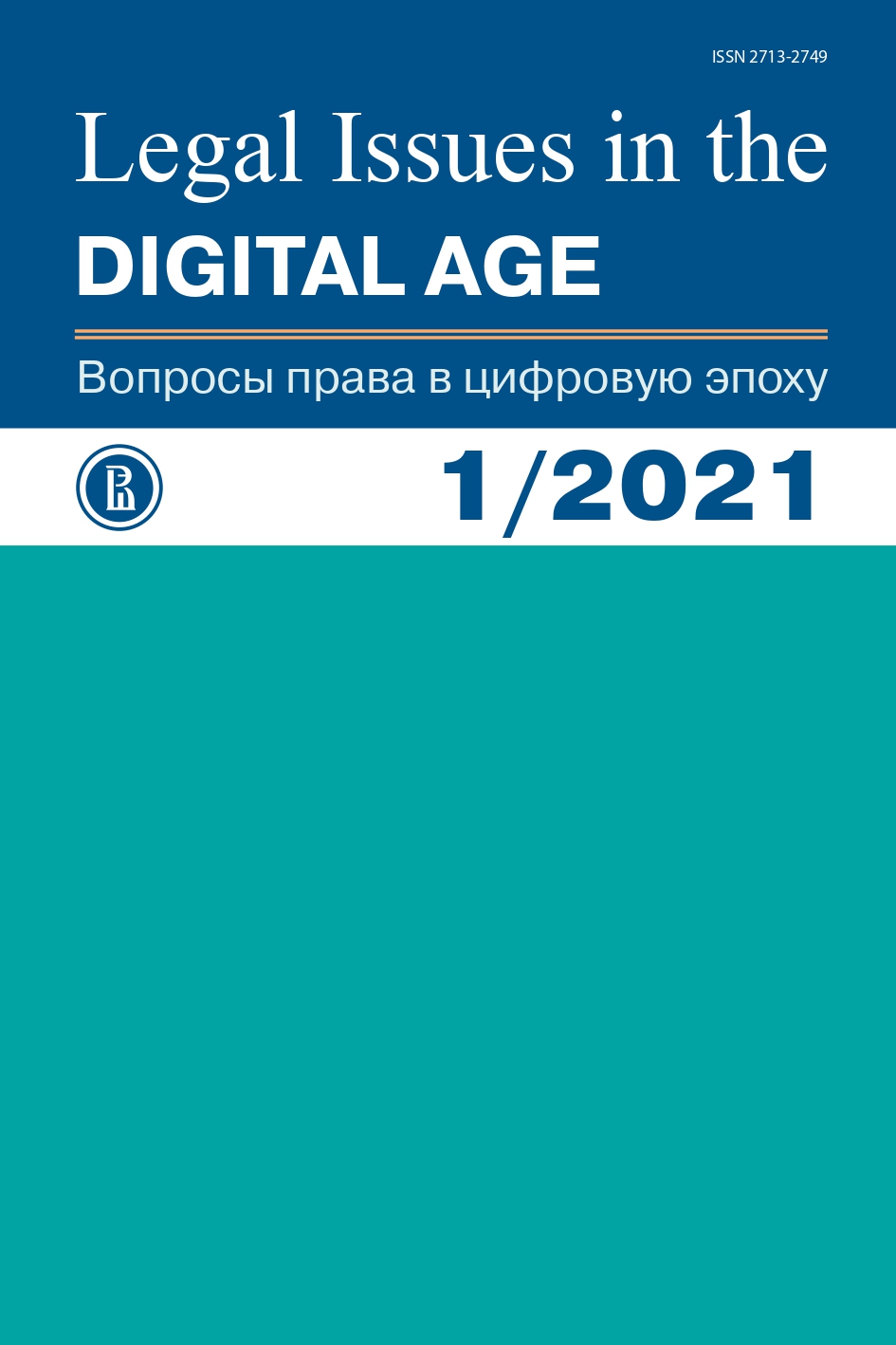Palingenesis of Criminal Law in the Conditions of Digital Reality
Abstract
The article proves that the influence of exponential and combinatorial technological changes has led to a crisis of criminal law, which is expressed in the inability to perform its basic functions due to the permanent and dynamic external environmental impact. The author identifies the following fundamental provisions that should be relied on when making decisions on the modernization of criminal law: the emergence of a new (informational) method of committing a crime does not a priori indicate that it is more dangerous than the traditional one, but in many respects indicates the problem of lag social control from the development of society and changes in crime; the adaptation of the norms of the criminal law to the conditions of the information society should not be associated with the construction of “digital twins” of traditional criminal law prohibitions; the introduction of appropriate amendments to the content of the norms is justified only in cases where the adaptive capacity of criminal legislation to manifestations of digital crime exhausts itself; the recognition of the use of information technologies as a qualifying feature of a crime in general must comply with the criteria for differentiating criminal liability justified in science. The article separately substantiates that the emergence of a “digital personality” will complete the beginning of the transition from the traditional criminal law of the industrial society of the 20th century towards the criminal law of the digital world of the 21th century (criminal law 2.0). First of all, this is due to the fact that artificial intelligence and “digital personality” will fundamentally change the scope of criminal law protection.
References
Agapov P., Borisov S. et al. (2014) Counteraction to cybercrime in the aspect of national security. Moscow: Academy of the General Prosecutor’s Office, 136 p. (in Russian)
Bostrom N. (2007) Technological revolutions and problem of prediction. In: Allhoff F., Lin P., Moor J., Weckert J. (eds.) Nanoethics: the ethical and social implications of nanotechnology. Hoboken (N.J.): Wiley-Interscience, pp. 101–118.
Brenner S. (2012) Cybercrime and the law: challenges, issues and outcomes. Boston: Northeastern University press, 263 p.
Decker C. (2008) Сyber-crime 2.0: An argument to update the United States criminal code to reflect the changing nature of cyber-crime. Southern California Law Review, no 5, pp. 972–995.
Grabosky P. (2016) Cybercrime: keynotes in criminology and criminal justice series. New York: Oxford university press, 168 p.
Kurzweil R. (2019) Evolution of the mind or the endless possibilities of the human brain based on pattern recognition. Moscow: Eksmo, 352 p. (in Russian)
Leonhard G. (2018) Technologies against man. Moscow: AST, 320 p. (in Russian)
Lem S. (1968) The sum of technologies. Moscow: Mir, 1968. 608 p. (in Russian)
Lv A., Luo Т. (2018) Authoritarian practices in the digital age. asymmetrical power between internet giants and users in China. International journal of communication, no 12, pp. 3877–3895.
Meissner M., Wübekke J. (2016) IT-backed authoritarianism: Information technology enhances central authority and control capacity under Xi Jinping. China’s Core Executive, Leadership Styles, Structures and processes under Xi Jinping. Mercator Institute for China studies, no 1, pp. 52–57.
Ohlberg M., Ahmed S., Lang B. (2017) Central planning, local experiments: the complex implementation of China’s Social Credit System. Merics China Monitor, no43, pp. 1–15.
Qianyun Wang (2016) A study of cybercrime comparative criminal law: China, US, England, Singapore and the Council of Europe. Rotterdam: Erasmus University Press, 381 p.
Rhaman M. et al. (2009) Cyberspace claiming new dynamism in the jurisprudential philosophy: a substantive analysis of conceptual and institutional innovation. International Journal of Law and Management, no 5, pp. 274–290. DOI: https://doi.org/10.1108/17542430910988883
Schwab K. (2018) The fourth industrial revolution. Moscow: Eksmo, 288 p. (in Russian)
Sithigh D., Siems M. (2019) The Chinese social credit system: a model for other countries? EUI Working papers, no 1, pp. 1–30.
Taubenberger J., Morens D. (2006) 1918 Influenza: The mother of all pandemics. Rev Biomed, no 1, pp. 69–79. DOI: https://doi.org/10.32776/revbiomed.v17i1.440
Williamson D. (2017) China’s online consumerism: managing business, moral panic and regulation. Available at: https://lancaster.academia.edu/DermotWilliamson (accessed: 17.02.2021) DOI: https://doi.org/10.2139/ssrn.3181287
Zhang T. et al. (2015) Using big data theory to establish a new standard for Social Credit System. Information China, no 10, pp. 94–95. DOI: https://doi.org/10.5220/0006444500950098
Authors who publish with this journal agree to the Licensing, Copyright, Open Access and Repository Policy.










